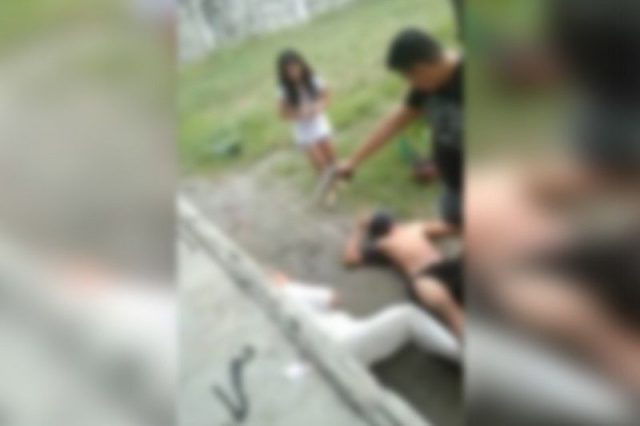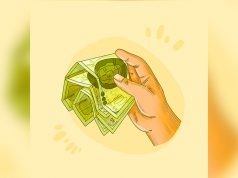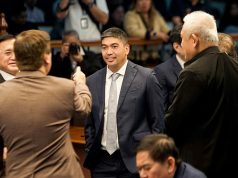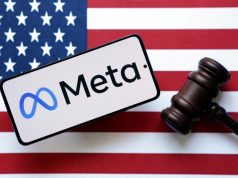
Several advocates of mental health and children’s rights on Monday urged fellow Filipinos to put a “trigger warning” label on the gruesome video of a cop shooting two unarmed civilians or delete it on all platforms.
Senior Master Sergeant Jonel Nuezca was caught on camera shooting two unarmed civilians 52-year-old Sonya Gregorio and her son, Frank Anthony Gregorio, 25, after a heated argument over “boga,” an improvised noisemaker used during the holidays in the Philippines.
Nuezca, who was reportedly assigned in Parañaque City, had already surrendered at the Rosales Pangasinan Municipal Police Station and turned over his PNP-issued 9mm semi-auto pistol that was used in the crime.
Police Lieutenant Colonel Noriel Rombaoa, chief of the Paniqui Police, also said that the local police have filed two counts of murder without bail against the police officer.
This was not Nuezca’s first time to face raps.
Data from Police Regional Office III chief Police Brigadier General Val de Leon showed that the local police officer had faced homicide cases in May and December 2019.
Both cases were dismissed due to lack of substantial evidence.
Meanwhile, the video of the incident circulated across Facebook, YouTube and Twitter. It also triggered a widespread call to end cases of police brutality in the Philippines and called for justice for the Gregorio family.
Calls to place a ‘trigger warning’ label
Given the graphic nature of the recording, Mental Health Philippines, an organization that promotes and protects Filipinos’ mental health, urged its followers to place a “trigger warning” label to flag readers and viewers.
“Dear all, the news today is indeed personally distressing and saddening. When sharing content, use the label ‘trigger warning’ at the beginning to flag readers,” the organization said.
It also provided mental health hotlines in case they needed immediate support after watching the video.
“Should you need mental health support, #ThereIsHelp at NCMH Crisis Hotline: 0917 899 USAP (8727) or 7 989 USAP (8727),” it said.
Dear all, the news today is indeed personally distressing and saddening. When sharing content, use the label "trigger warning" at the beginning to flag readers. Should you need mental health support, #ThereIsHelp at NCMH Crisis Hotline: 0917 899 USAP (8727) or 7 989 USAP (8727).
— MentalHealthPH (@mentalhealthph) December 21, 2020
Twitter user @_taedyvear also shared a video clip of a breathing exercise for others who experienced distress.
breathing exercise for those who watched the video #StopTheKillingsPH pic.twitter.com/oeXzHPW4rD
— Diannee⁷🍓🧸 || 📚 (@_taedyvear) December 21, 2020
Others suggested to not watch it altogether and shared an image of a written narration of the incident instead.
Poll spokesman James Jimenez and reporter Raffy Tima likewise discouraged the public from sharing the video to prevent further trauma.
Let’s not share the gruesome video. It could be traumatizing for some. Worst , it could embolden others.
— Raffy Tima (@raffytima) December 21, 2020
Please don't share that video.
— James Jimenez (@jabjimenez) December 21, 2020
Why this ‘trigger warning’ label is important
Merriam-Webster defines the term “trigger warning” as “a statement cautioning that content (as in a text, video, or class) may be disturbing or upsetting.”
The label is not necessarily placed to serve as a stop sign, rather to help people who have past traumatic experiences to prepare themselves for a particular disturbing content.
An article from a Coloarado-based mental health facility stated that the idea of putting up these precautions started online.
“Bloggers began posting ‘content warnings’ at the top of posts that contained graphic descriptions of personal experiences or struggles that they were processing through, and which might cause re-traumatization in others with similar experiences,” the article stated.
“Content warnings may be a straightforward reference to the general topic, such as ‘eating disorders,’ ‘gun violence,’ or ‘self-harm,’” it added.
A 2018 Harvard study, however, found that warnings have no significant effect to their participants who were college students.
Another study published in 2019 shared similar observations in an article by The Atlantic titled “The Real Problem with Trigger Warnings.”
“College students are increasingly anxious…and widespread adoption of trigger warnings in syllabi may promote this trend, tacitly encouraging students to turn to avoidance, thereby depriving them of opportunities to learn healthier ways to manage potential distress,” researchers were quoted as saying.
Facebook, for its part, include a warning screen so that people are aware the content may be disturbing.
“We also limit the ability to view the content to adults, ages eighteen and older,” the social media giant.
Child rights is still important
Veteran reporter Inday Espina Varona, meanwhile, noted that the video should be taken down instead, citing the protection of minors in the video.
Twitter, please take down videos of the police killing mother and son in Tarlac, the Philippines. There are children involved — on all sides.
— inday espina varona (@indayevarona) December 21, 2020
In the comments section, Varona noted that there are laws that uphold children’s rights even those who are in conflict with them.
“Children’s welfare trumps that. We can all discuss police brutality and terrorism without having children’s faces out there. And there is a law protecting them,” she said.
One of the minors prominently shown in the clip was Nuezca’s daughter who uttered the phrase “My father is a policeman” during the altercation between the cop and the unarmed victims.








